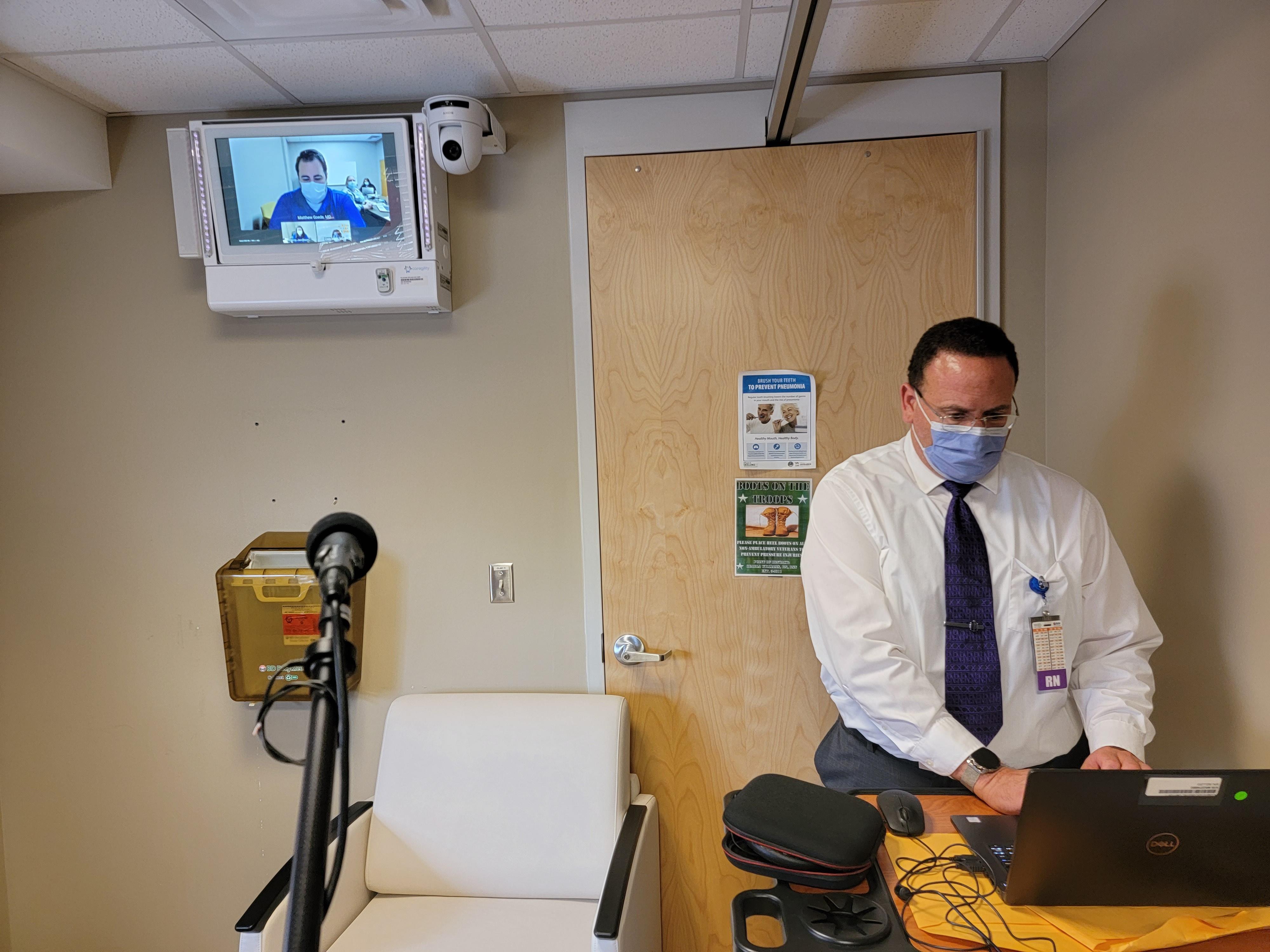At the G. V. Sonny Montgomery Veterans Affairs Medical Center in Jackson, ICU patients are being monitored around the clock through a new telemedicine operation.
The online system uses 17 cameras that are connected to screens and allows direct communication between medical resident students and trained physicians across the country. Remote physicians can monitor telemetry data from a patient, and when problems are identified such as low oxygen levels in the blood, or a high heart rate, they can turn on the cameras and alert local staff to the issue.
Tony McLaurin, ICU Nurse Manager at the V.A., says there are not enough ICU doctors to have someone at the hospital around the clock, and on nights or weekends, physicians will be at home and could take around 20 minutes before they can arrive at the hospital. He says using this system of remote physicians can help bridge the time gap until they can respond.
“It’s not meant to take over the level of care that we have right now, but it’s an additional guidance, and additional level of protection for us. An additional level of knowledge base for us,” says McLaurin. “On the weekends when we may be lightly staffed, we’ll have those extra eyes. Or we have pulmonologists and trauma surgeons across the country who can help us take care of our veterans.”
At the V.A., many ICU patients have the coronavirus, and some are being cared for in overflow intensive care settings. Dr. Rajesh Bhagat, ICU Director at the V.A says when a patient comes to the hospitals with the coronavirus, they typically remain stable for several days. However, he says when a patient’s condition does deteriorate, it can happen very quickly and at any time of the day.
Dr. Bhagat says “You need somebody to pick up that the patient is not doing well to activate the teams that this needs to happen. So you have an extra set of eyes that will monitor the vitals 24/7/365, and then they can contact us and say ‘Hey, your patient is not doing well. You need to come in.’ And then they can guide the resident on what they need to prepare for and what to plan for.”
Doctors say this program will help monitor coronavirus patients, and they hope this can be a long-term solution to staffing shortages.




